Presentation on Alternative Dispute Resolution in Contract Law
VerifiedAdded on 2021/04/17
|17
|1050
|44
Presentation
AI Summary
This presentation provides an overview of Alternative Dispute Resolution (ADR) methods within the context of contract law, suitable for a presentation assignment. It defines ADR and explores its various forms, including arbitration, mediation, and negotiation, with a focus on resolving disputes, such as those involving unpaid invoices. The presentation outlines the regulations governing ADR, specifically in the UK, and details the processes and benefits of each method. It highlights relevant conventions and legislation, such as the Arbitration Act 1996, and discusses important cases that have shaped arbitration practices. Furthermore, the presentation covers relevant contract clauses, including hybrid and unilateral clauses, and examines the use of negotiation in resolving disputes, emphasizing effective strategies. The presentation includes a comprehensive bibliography of sources used.
1 out of 17
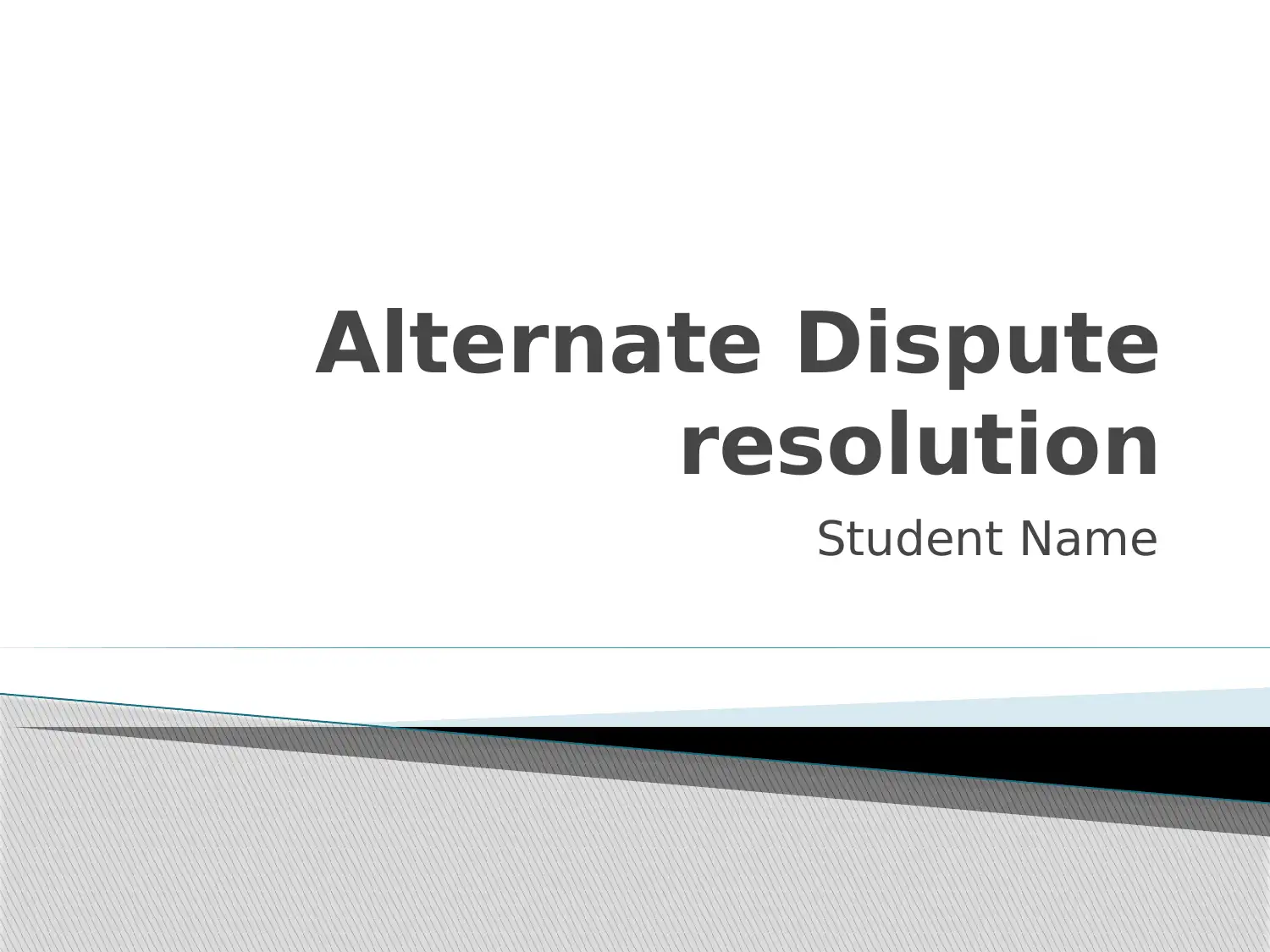
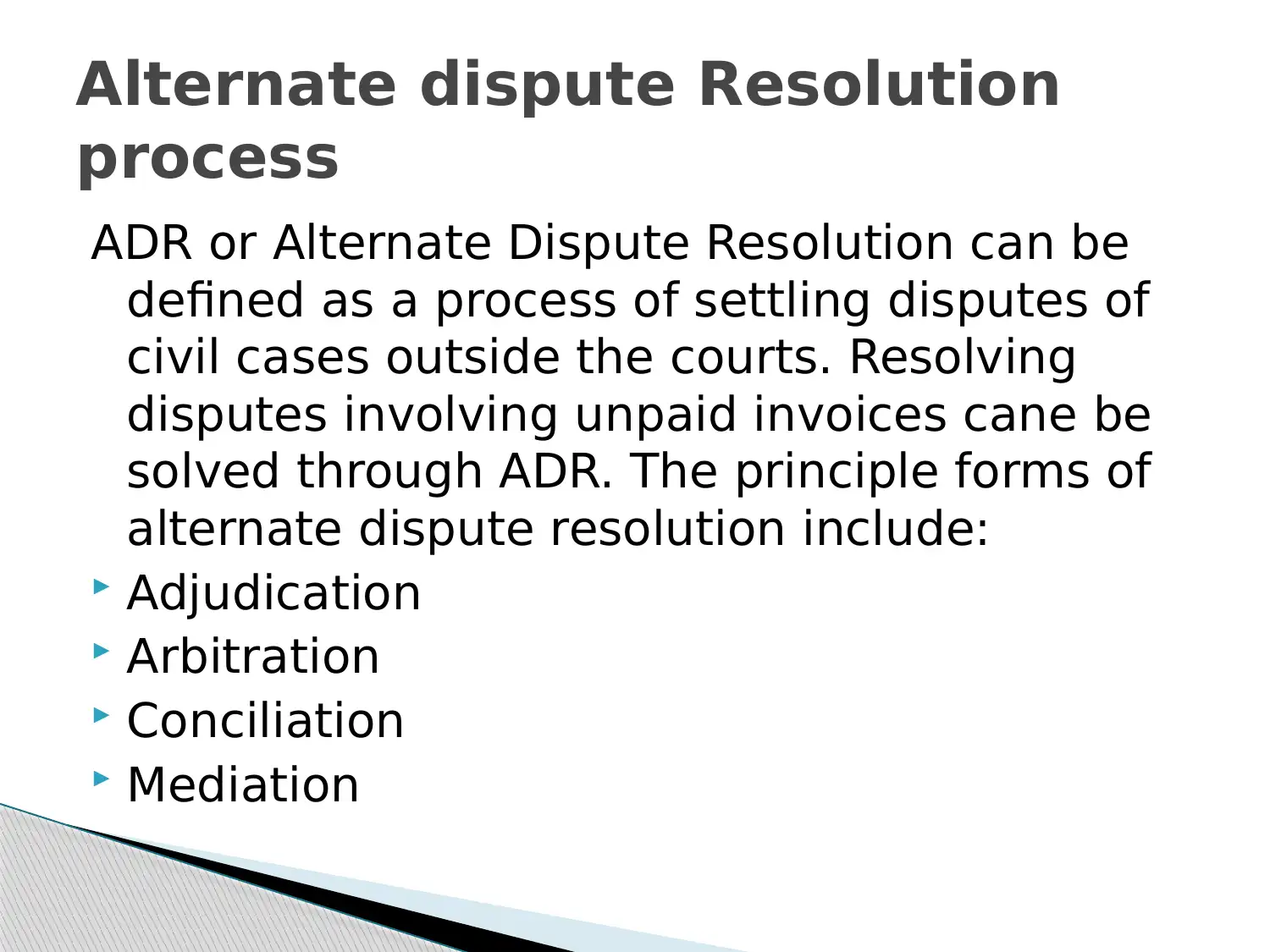
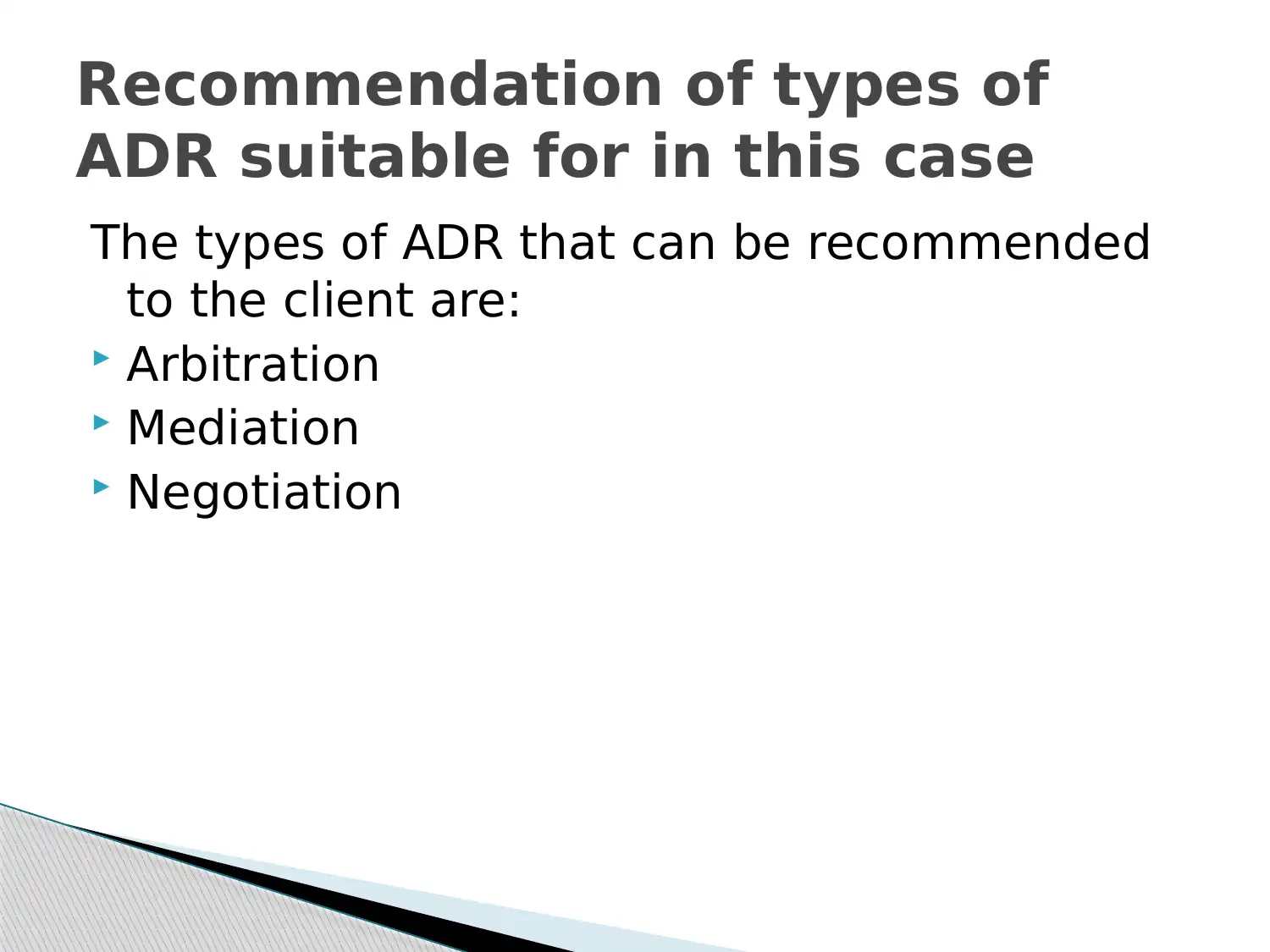

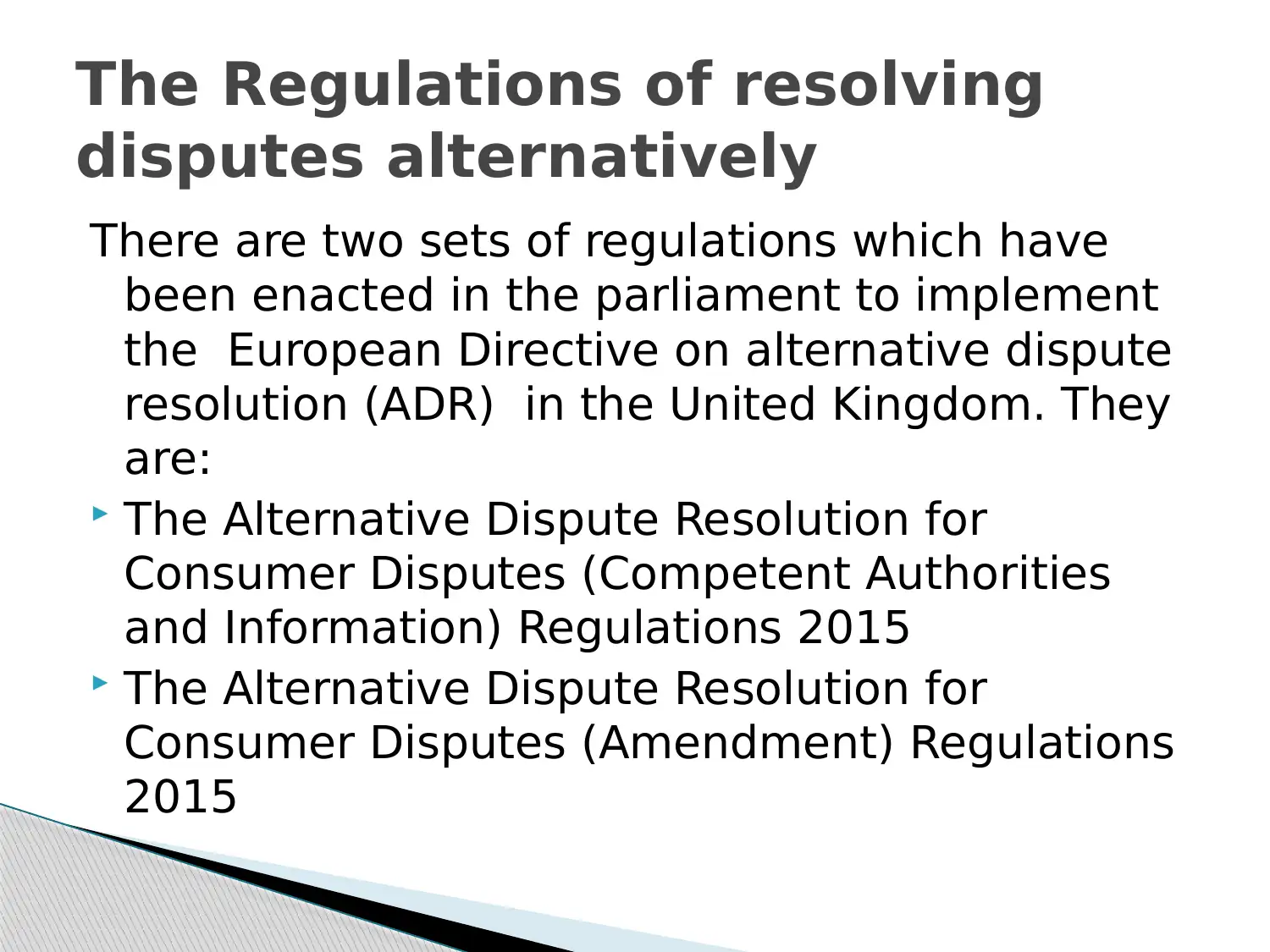
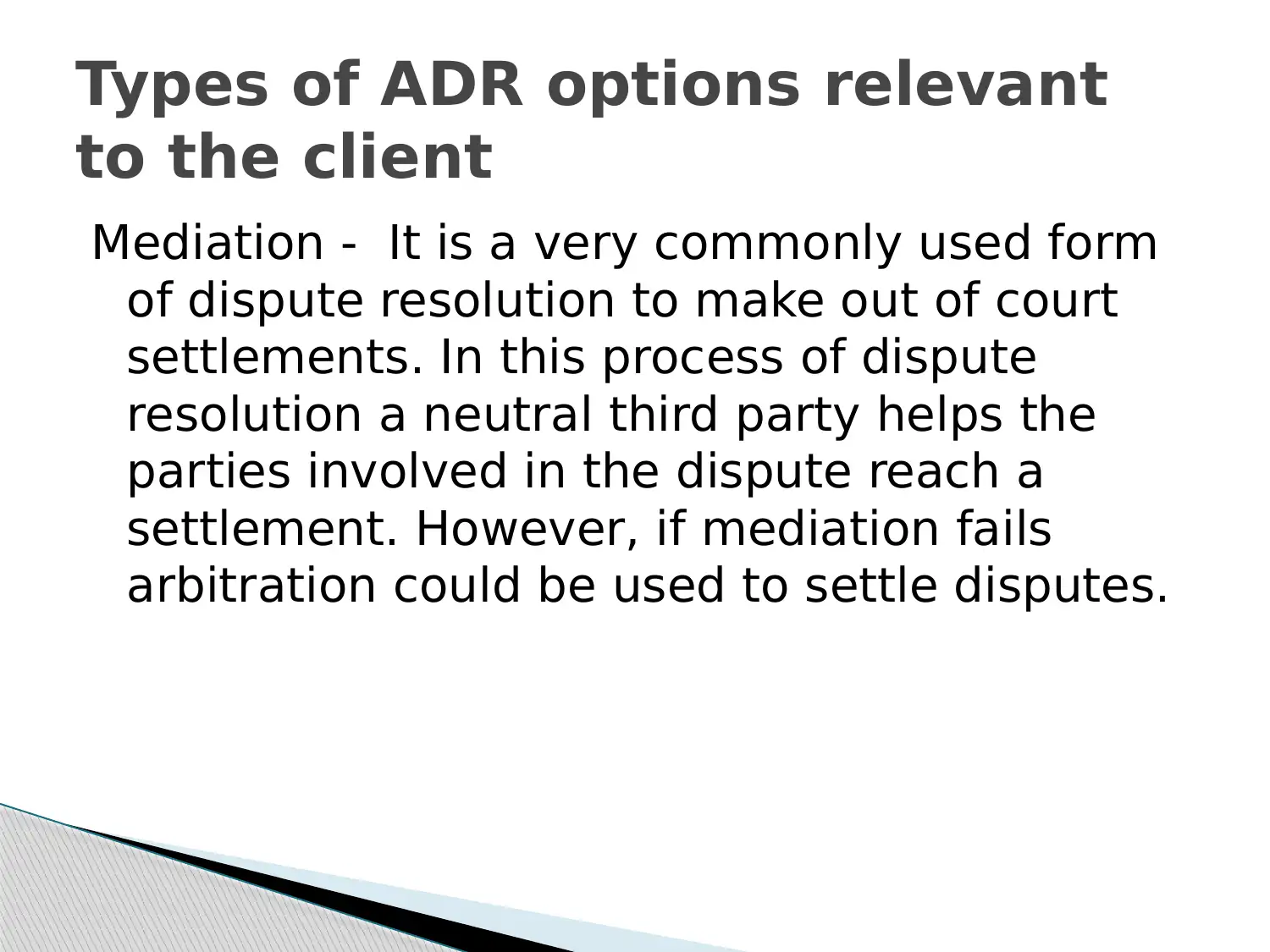
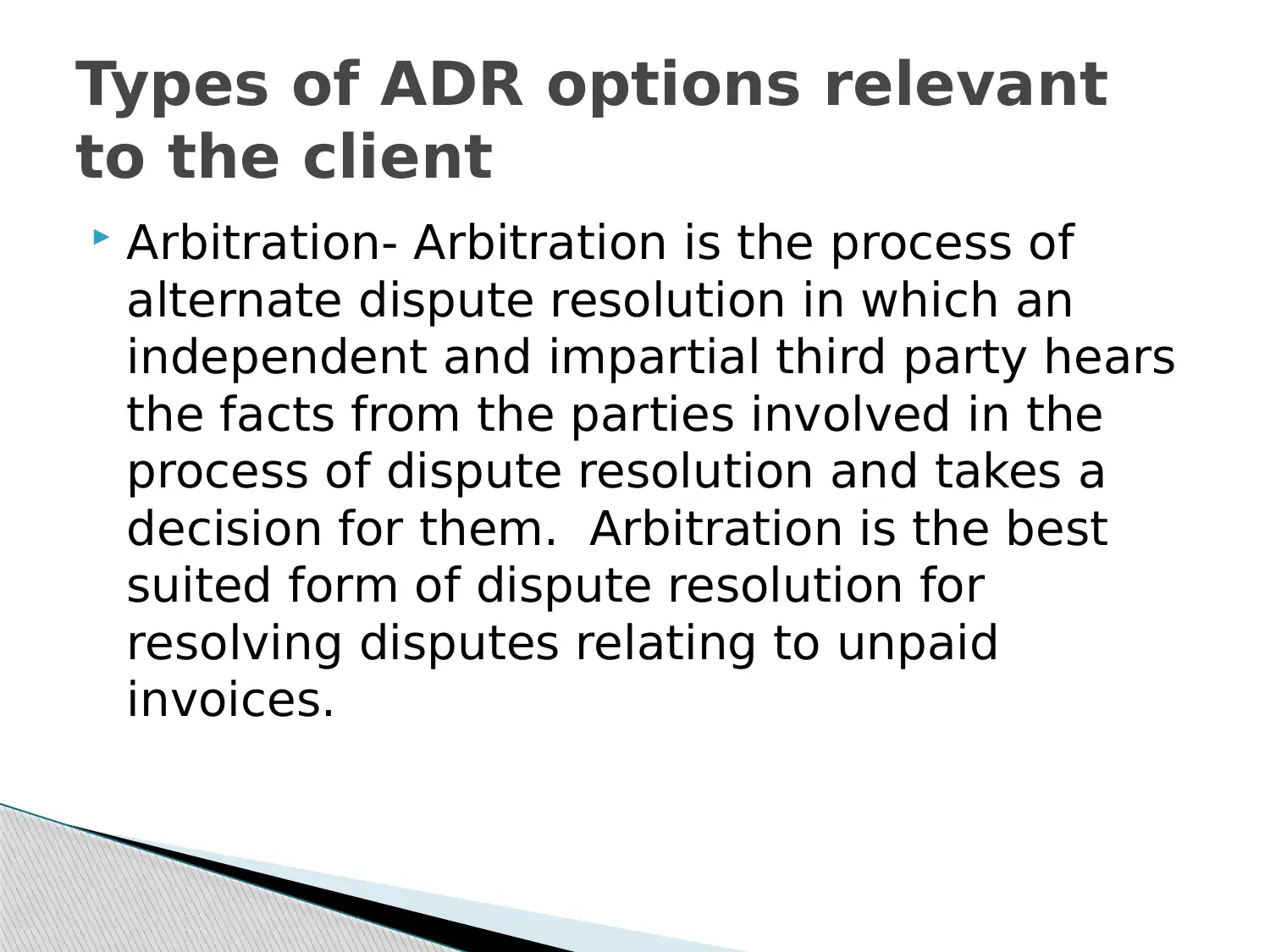
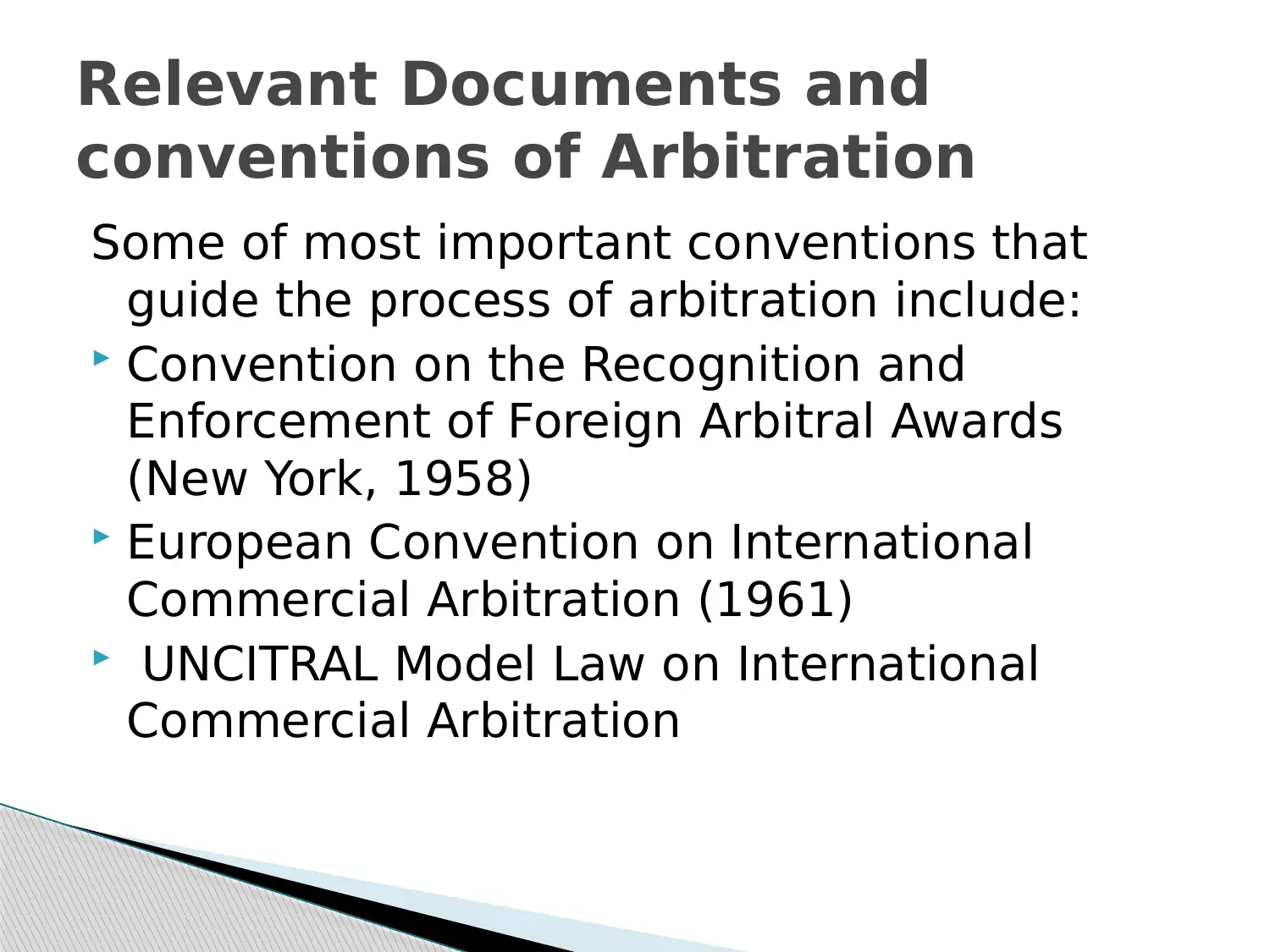
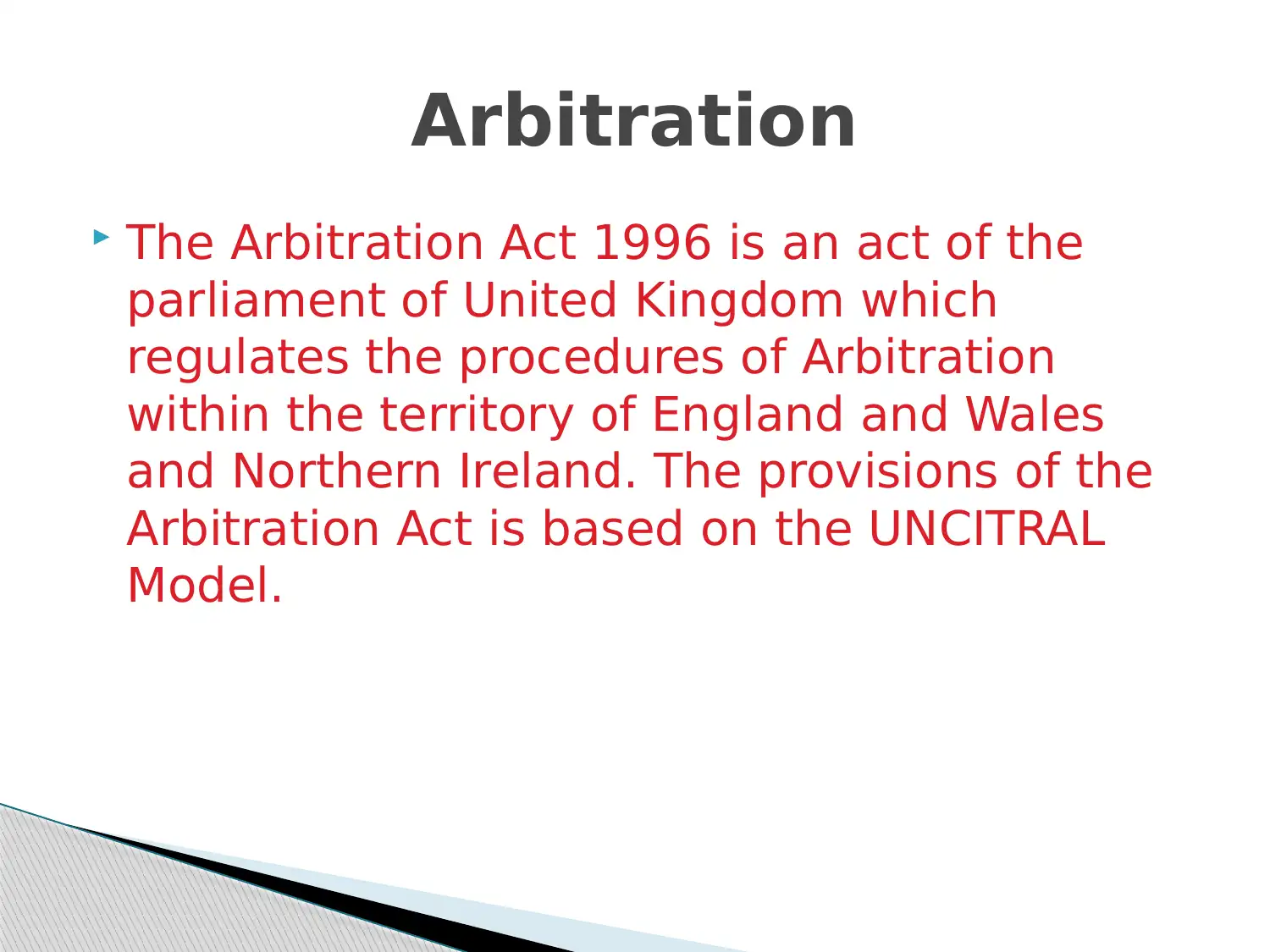
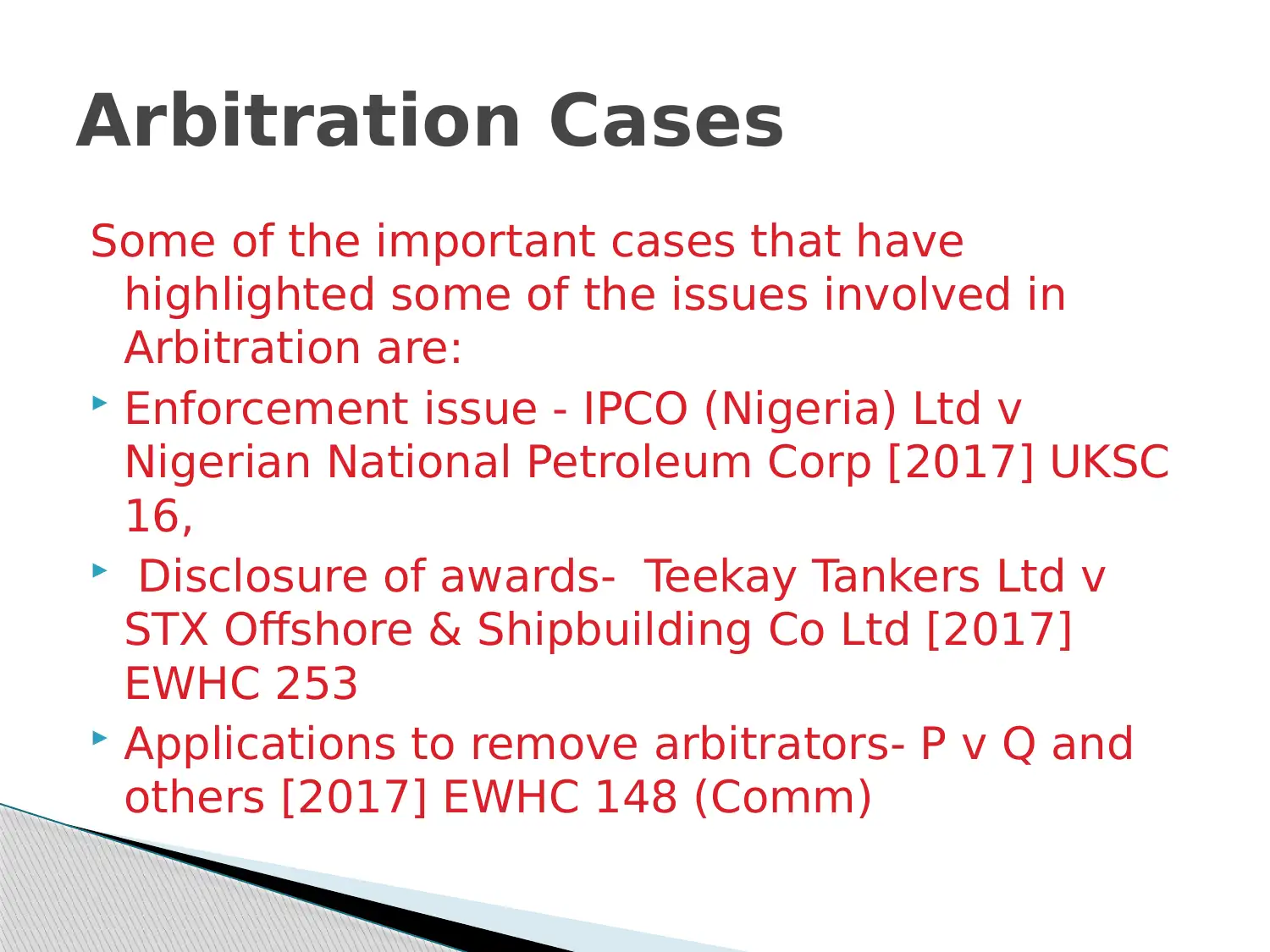
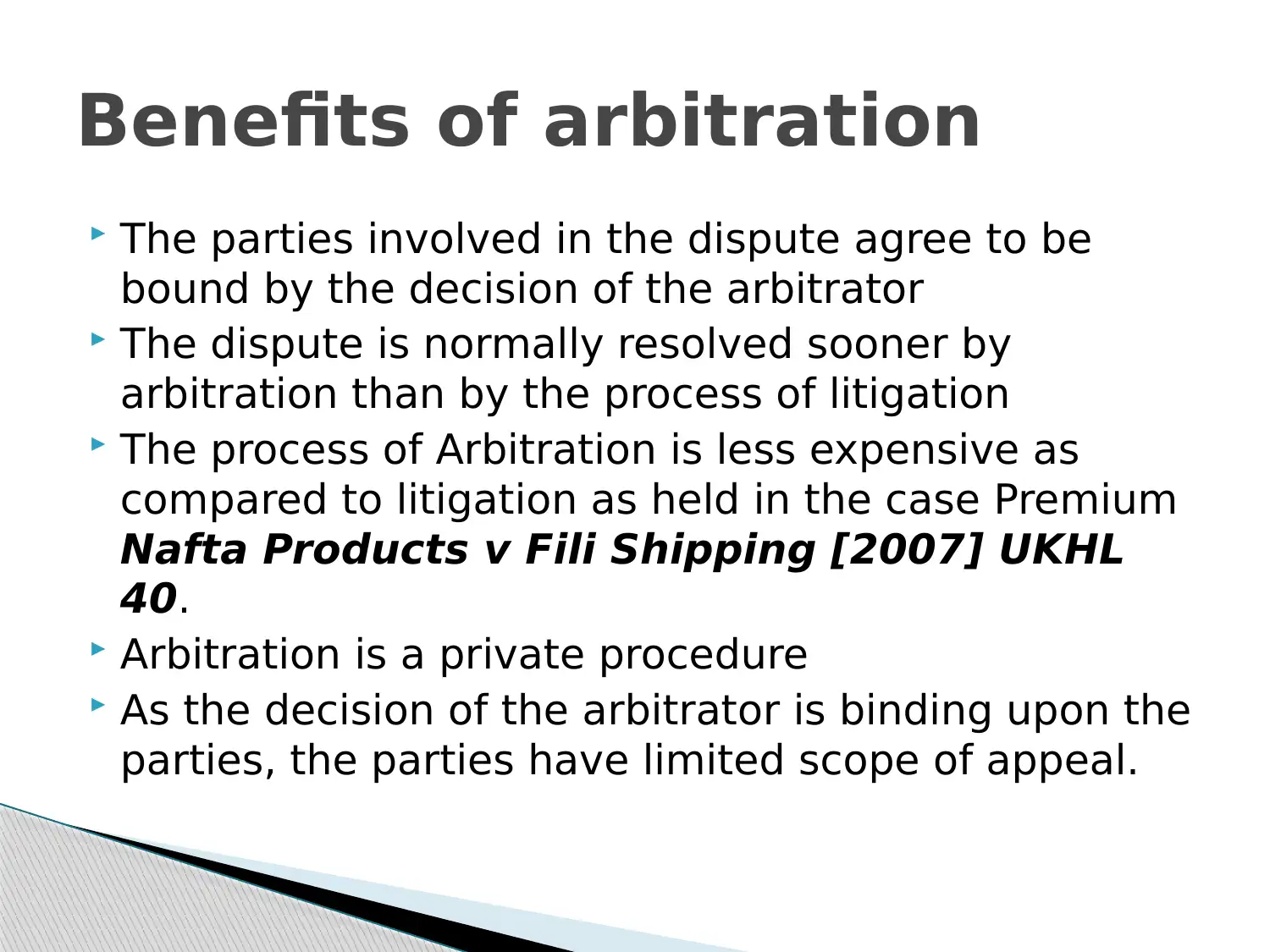
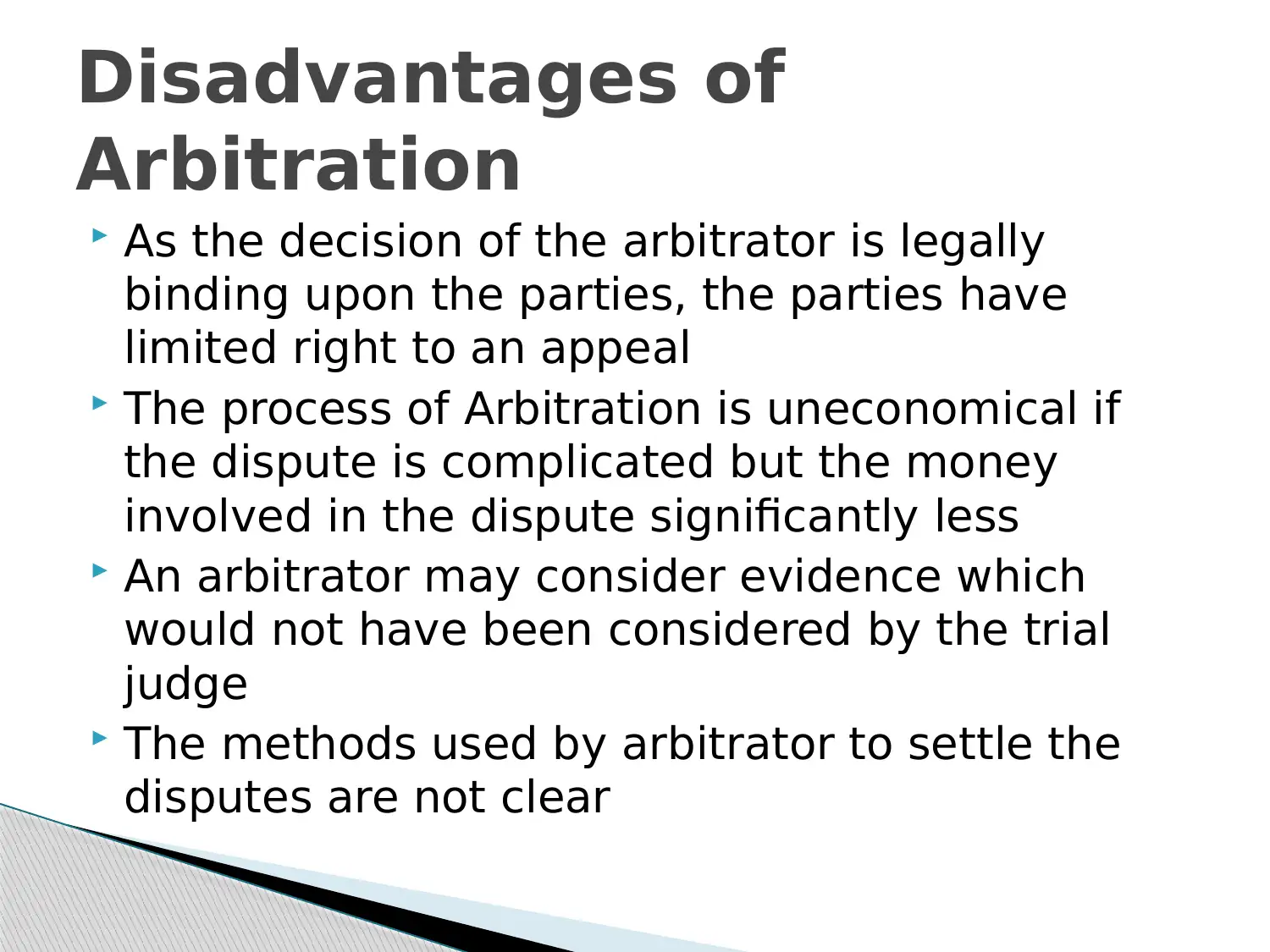
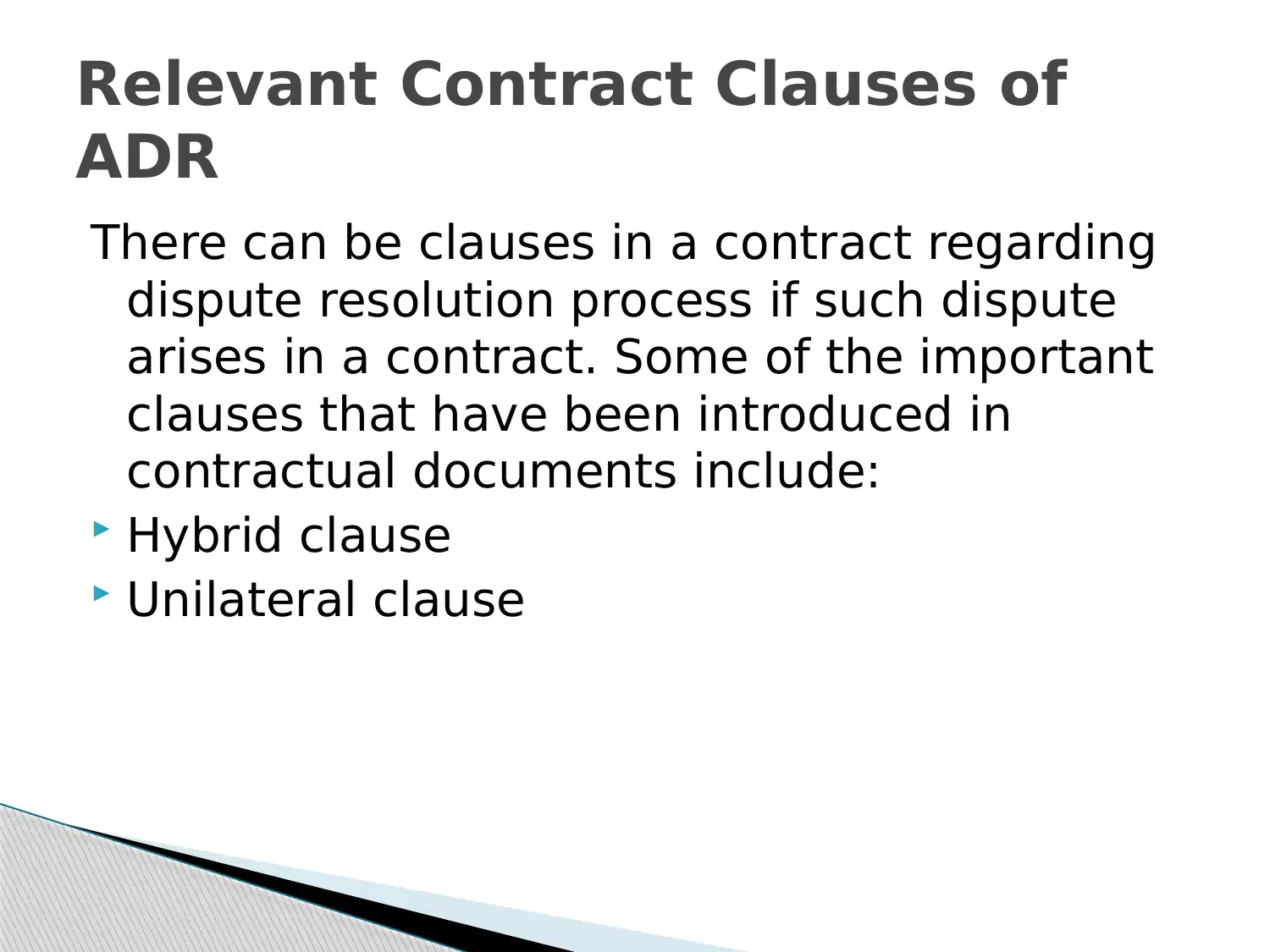






![[object Object]](/_next/static/media/star-bottom.7253800d.svg)